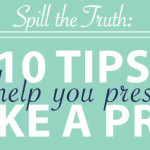Everyone enjoys a good joke, right?
Unless, of course, you happen to be the butt of the joke, then it’s not nearly as much fun.
Let’s face it: Words can hurt, especially in the workplace where professional courtesies ought to be the norm. But there are steps you can take to minimize the pain.
For starters, know what to say to neutralize even the most trying situations. For example:
- A coworker uses a racial slur in your presence. Take a stand by saying, “That sort of language goes against our company values. We need to be respectful of everyone we do business with.”
- Your boss calls you a worthless slacker. Never laugh that off. Say, “I’m going to need you to clarify that comment. In what way am I not meeting expectations?”
- An employee starts screaming about a vendor. Temper their outburst with a comment such as “Help me understand how I can help you deal with this issue.”
And anytime your opponent excuses their behavior by saying, “I was just kidding,” don’t let them off the hook too easily.
Suppose someone always refers to you as “Blondie” and you don’t like it. The next time it happens, respond with a neutralizing, yet actionable, statement such as “I’d prefer it if you’d address me by my first name.” If he or she replies by saying, “Oh gosh, I was just kidding,” hold your ground: “That may be so. But my preference is still for you to refer to me by my name.”
A word of caution: In defending yourself against an offensive jokester, check with friends or colleagues to make sure you’re reading the situation correctly. Do other people see this person as harmless? Then perhaps you’re being over sensitive.
Before you act . . .
In all personal interactions, the one thing you can control is your feelings. So, if a jerk won’t change his or her spots, don’t devolve into a scold. Instead, focus on not letting the offending party get to you. After all, words can only hurt us if we let them.








